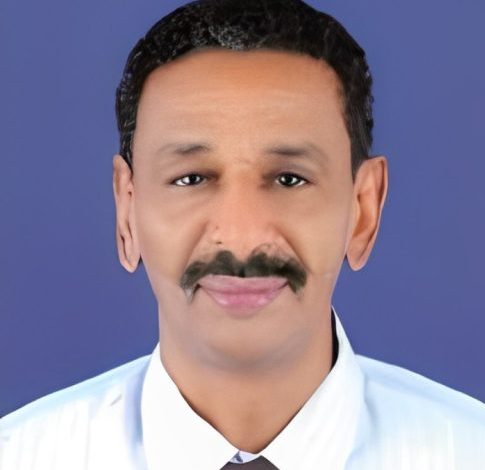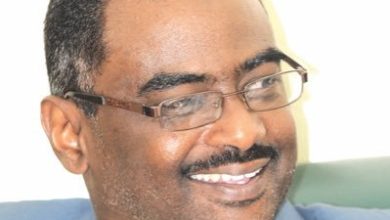From (Aboud) to (Hemedti): Military and politics in Sudanese politics

Adel Ibrahim Hamad
Just Like others, I was shocked by the news and pictures of the heinous atrocities that occurred in El Geneina during the Rapid Support Forces’ (RSF) invasion of the Massalit homeland. The images of the governor’s killing and the mutilation of his body embodied tragedy and shock. Although events like these threaten their perpetrator with final exclusion from the political and social scene, I nevertheless did not think it likely to remove the RSF from the scene, because the presence of the (military) has become a necessity in Sudanese politics after most of the civil political forces became convinced of the necessity of having a military lever that politician does not dispense with it – no matter what the military does or transgresses, so the Janjaweed remained despite the shock of the events in El Geneina.
Using military force to gain power is common in Sudanese politics, and since politics is the task of the civilian politician, the politician believes that the military’s role in this alliance is a temporary one that ends soon with the matter of managing the political process being transferred to the politician and the military returning to the barracks, guarding the borders and protecting the constitution. But reality says otherwise, as (all) the facts have confirmed the failure of the political bet.
The relationship between the politician and the military began early – less than three years after independence, when Prime Minister Abdullah Khalil asked the army commander, Ibrahim Abboud, to seize power to block Azhari’s path; Khalil thought that he was (controlling) the course of the political process. He imagined that he could ask Aboud to return to the barracks after he had completed the task of controlling the course. Khalil did not realize that his instructions the second time would be to a (president) who tasted power – he met John Kennedy, received Abdel Nasser, participated in establishing the Organization of African Unity, and recognized the People’s Republic of China. It was not strange that the soldier Ibrahim Aboud bypassed the politician Abdullah Khalil, and even sent him to (Nagishut) to be detained with other politicians. The military president gained strength, and behind him was an institution to be reckoned with – even if politics was not its original mission.
The Communist Party may have thought that its alliance with the military institution would differ from the Khalil-Aboud alliance; which was supported by sectarian statements without other necessary aids possessed by the party that has the organizational capabilities and capabilities for mass movement. The party must have bet on the charisma and reputation of the party’s leadership. (Numeiri) would not have a significant presence in the existence of (Abdul Khaleg) the tyrant; The army will not advance over the party, especially since the party has membership in the military institution.. But… the bet failed seriously, as a result of which the party paid a heavy price, and I do not need to repeat its details.
So, what about the Islamic Front repeating the same experience and copying the same alliance, not being upset by what happened to the Communist Party?
It seems that the Islamic Front has imagined that the Islamic soldier is fundamentally different from the membership of other party soldiers – his religious commitment directs him to obey the (custodian) even if he is a sheikh outside the military institution; The influences and directives of the Islamic organization are stronger than the relationships of comrades-in-arms with each other.
But; when the decisive moments of separation between the military institution and the organization arrived, Abdelrahim Mohammed Hussein and Bakri Hassan Saleh sided with his comrade-in-arms Omer Al-Bashir, along with officers who did not belong to the organization, so that they were all equal in overtaking Sheikh Hassan Al-Turabi. When the Sheikh later insisted on confrontation, they did not hesitate to send him to prison. The star of the military Omer Al-Bashir rose and the political thinker who held the October symposium, university professor Hassan Al-Turabi, gradually declined. The role of the Islamic movement declined and the military institution advanced greatly until the army commander occupied the position of head of the ruling party.
The next experience is the experience of the National Democratic Congregation, which included civil political forces with the Sudan People’s Liberation Army (SPLA), the military wing of the SPLM. This is an experience that requires more precise evaluation. If we have noticed in the reviewed experiments that the soldier always wins the bet; Despite the scarcity of the civilian role and despite the limited military role in a coup that only takes hours, we realize the risk of civilians in requesting military assistance from the SPLM to Reclaim Democracy from a regime guarded by the military institution , security measures, and repressive measures. This is a difficult task that the SPLM will not perform except in exchange for a large charge, as the movement will not accept that its fighters shed their blood for politicians in the north to regain power in Khartoum.
The second fact about the military-political alliance in the experience of the National Democratic Congregation (NDC) is that the SPLM and its People’s Army are an extension of the Southern Political Movement concerned with the special situation in South Sudan – even if it claims to be a movement concerned with the liberation of all of Sudan. As soon as the SPLM had the opportunity to resolve the southern issues to the exclusion of the rest of the country, it hastened to pick the low-hanging fruit, leaving the NDC to face its “issue” that concerned it in the north, without SPLM feeling that it had lost anything.
The experience of the NDC is a good example of the danger of (borrowing) inauthentic power. While acknowledging that it is an obligatory borrowing, it must be recognized that the political empowerment of the military does not only force the politician to make concessions; Rather, it puts him under the constant threat of exclusion, as happened in the May and Salvation experiments – and as happened with the SPLM when it abandoned its allies in the NDC and signed the Comprehensive Peace Agreement with the Islamic Salvation regime.
The most recent experience of military-political alliances is the alliance between some of the civilian forces in the Forces of Freedom and Change (FFC) and the RSF, which is the worst experience, because it is not taken into account previous experiences in which civilians were victims of the military institution, and because of the complete disregard for the RSF’s history of rebellion and even evasiveness. Just as the leaders of the NDC were blind to the reality of the relationship with a regional movement concerned with the grievances of a particular people, the leaders of FFC were blind to the reality that the RSF centers on limited tribal goals and family and personal ambitions. Just as the hopes of the NDC that Dr. John Garang would restore democracy in Khartoum were disappointed, the hopes of FFC were disappointed in Hemedti, whose knowledge and qualifications do not qualify him to carry a vision of how to establish a democratic system. The experience of the last coalition was characterized by a more dangerous phase. This time, the military ally was not restrained by the controls and customs of modern military institutions, and it quickly relapsed into its original nature – expelled, intimidated, dragged, killed, and shocked by the events with which we opened the article.
Bitter experiences that may make the political forces aware of the danger of military support – whatever the pretexts. The lesson is not complete unless the civil forces prepare for the difficult demands of governance, and that the parties practice a complete reform process that necessarily includes sensing the importance of intellectual presentation and political programs, and includes practicing internal democracy and qualifying membership, in order to overcome the state of miserable performance of the party institution, which was negatively reflected in the performance of civil rule in particular. In the third democracy and in the period of transition after the December Revolution, which gives the coup plotters and their followers the opportunity to claim the necessity of military intervention to “decide on” the civilians and put an end to the state of “reluctance” and slowness – according to the claims of the coup plotters.
Are there features that herald a lesson from past failure experiences that led to chaos and invasion.


